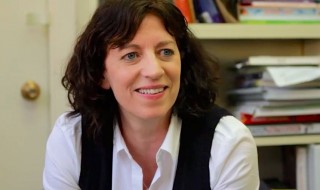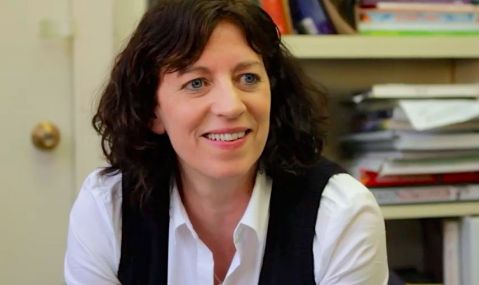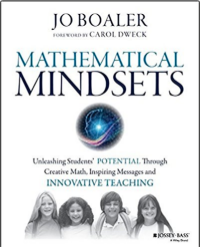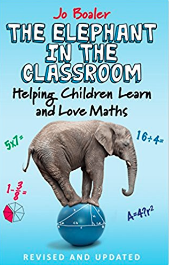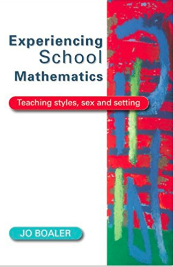A beginner’s guide to Jo Boaler
Where does she work?
Jo Boaler is currently a professor of mathematics education at Stanford University, and faculty director of YouCubed, a provider of new and innovative techniques and resources for the teaching of maths. She completed her PhD in mathematics education at King's College London.
Quick facts:
What is she best known for?
Her seminal 2008 book What's Math Got to Do with It?, which tackled the crisis of the US's plummeting rankings for mathematics performance. It presented a bold new course of action for reformation of mathematical teaching approaches, student strategies, and ways for parents to engage with their children. For many teachers, it is an indispensable resource.
What's it all about?
Boaler identifies three reasons for the ineffectiveness of maths education in the US: its lack of active interaction with students, its emphasis on memorising and parroting information rather than developing critical approaches, and the fact that unrealistic scenarios are used to teach maths rather than examples that will crop up in real life. Further to this, she condemns the use of treating "speed with numbers" as a measure of students' mathematical talent, claiming that it leads slower students to believe they are bad at maths, and induces long-standing anxiety that can breeds a dislike of learning maths that stretches into later life.
Testing her methods on pupils within three different schools, Boaler demonstrated how making maths relatable to real-world situations and engaging creatively with visuals and critical thinking can lead to a drastic improvement in performance. Boaler's research suggests that teaching maths as a thoughtful and creative subject – rather than a mechanical and memory based one – produces better test results and a learning experience that doesn't alienate pupils.
Boaler strongly advocates for changes in how parents engage with their children around maths, encouraging them not to talk about their own weakness with the subject, to ask their children to explain maths problems to them, and to show enthusiasm for their children's homework.
As well as offering practical solutions to the problems with maths teaching, Boaler rallies against ability grouping in classrooms, citing the success of maths students from countries that don't group classes in this way.
What does she research?
Boaler has long advocated for enquiry-based learning, a practice which requires students to develop their own questions and use their knowledge to find solutions to tasks.
More broadly, she has investigated gender and race inequalities among maths pupils, and concluded that negative stereotyping can affect the confidence of female and minority students in the subject. Her research calls for girls and ethnic minority students to be offered additional encouragement to study maths and science; greater group work between students; appealing to girls to think deeply rather than procedurally about maths; and a rejection of the myth that boys naturally have a greater aptitude for maths.
A believer in revolutionary and holistic approaches to improving confidence in maths, Boaler has dealt with maths anxiety among adults and children alike, and calls for an end to the myth that being able to work out math problems quickly is an indicator of talent. Instead, she advocates for actively encouraging students to think carefully and deeply about maths problems.
What she says:
"I work with a lot of mathematicians, and one thing I notice about them is that they are not particularly fast with numbers; in fact some of them are rather slow. This is not a bad thing: they are slow because they think deeply and carefully about mathematics."
What others say:
"Boaler may not be a popular figure among teachers and reformers who favour a more traditional approach, but everyone else should find her work interesting, readable, and actionable." – Andy Smarick, Thomas B. Fordham Institute
Why you should consider reading more:
Boaler's work has attracted significant attention and praise from practitioners and parents alike, with many teachers citing her work as directly influencing and improving their teaching practices. Professor Boaler is also faculty director of YouCubed, an organisation that brings her revolutionary techniques directly to teaching practitioners. Its success is palpable – one in four US schools (and over 125,000 teachers in 140 countries) follow its ideas, which have led to a 50% improvement in test scores.
Top reads:
Inspired by evidence-based practice? Check out EdResearch, our searchable library of education research and follow @EdCentral on Twitter for all our latest updates.
Related Posts
Comments
By accepting you will be accessing a service provided by a third-party external to https://edcentral.uk/
